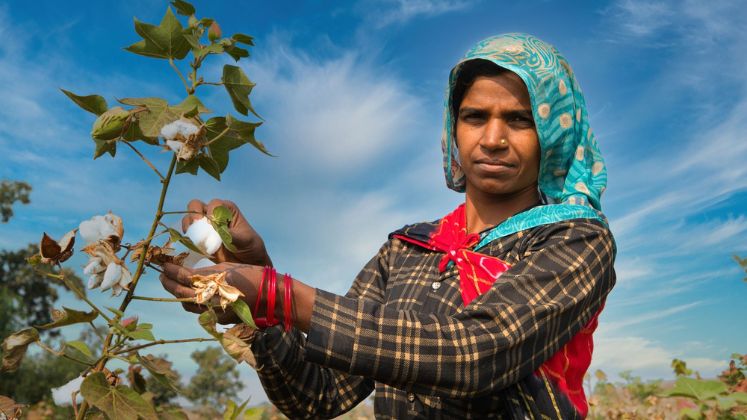London-based CottonConnect, a pioneering social enterprise helping brands to access more sustainable cotton and other natural fibres, has come up with a new report highlighting the impact of climate change on women cotton farmers in South Asia and actions being taken to help them adapt.
The report, Women in Cotton: Addressing the Impact of Climate Change through Climate-Friendly Practices shares detailed insight into the challenges faced by women farmers in India, Pakistan and Bangladesh, who play a critical but often unrecognised role in smallholder cotton production.
Through interviews with over 100 women farmers in Bangladesh, India and Pakistan, key findings show that extreme weather exacerbated by climate change negatively affects biodiversity, crop yield and pest control; and that women’s health and well-being is adversely affected but that they still shoulder more of the burden for the farm and the home, regardless of their own health issues or time limitations.
It also shows that empowering female farmers through training in sustainable agriculture and climate change awareness is helping to create positive change.
The report recommends for empowering women in agriculture and advancing climate-friendly practices including amplify women’s voices: Ensure women farmers’ perspectives are acknowledged and learn from their lived experiences: Engage more with women farmers to gain insights from their first hand experiences.
Alison Ward, CEO, CottonConnect said “Our report shows that women are disproportionately affected by climate change but – when they are trained and armed with awareness and understanding – they can play a crucial role in adapting and reducing vulnerability to climate change. Because they are deeply rooted in the lives of family and community, they know what solutions are required beyond the farm. Empowering women in the cotton value chain can have positive effects beyond farm productivity leading to improved living standards and food security.”
Source ; Apparel Resources

